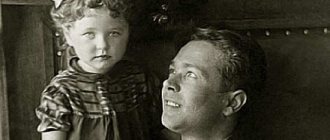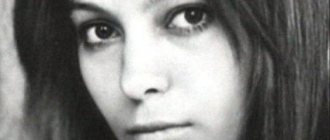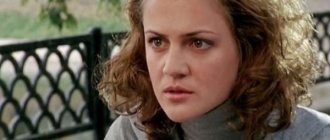Family
The future wife of Alexander Pushkin was the daughter of Nikolai Goncharov. His ancestors were merchants who, under the reign of Elizabeth Petrovna, were granted nobility by imperial decree. Being the only son of his parents, Natalya’s father received an excellent education, in 1804 he was enrolled in the College of Foreign Affairs, and after some time, having received the rank of collegiate assessor, he took the position of secretary of the Moscow governor.
His wife, Natalya Ivanovna, née Zagryazhskaya, was a maid of honor at the imperial court. From their marriage seven children were born. Natalia Goncharova is the fifth child in the family.
Frivolous loss of a child
Natalya Goncharova gave her husband four children, but she lost her fifth baby. This happened solely through the fault of Natalya Nikolaevna herself, who did not want to give up entertainment. Being on a fairly serious term, the poet’s wife did not miss a single ball, without making a single concession to herself.
At one of the social events, Goncharova danced so uncontrollably that she began to bleed heavily and suffered a miscarriage. We can say that the fifth child became a victim of his own mother’s frivolity.
Childhood and youth
Natalia Goncharova spent the first years of her life in the countryside: first in the village of Karian, Tambov province, then in the estates of Yaropolets and Polotnyany Zavod. Then the family moved to the capital.
Natalia Goncharova, like her brothers and sisters, received an excellent education at home. The children were taught Russian and world history, geography, Russian and French languages and literature. At the same time, Natalia, who was the youngest of the Goncharov sisters, was distinguished by her exceptional beauty. According to the memoirs of contemporaries, her sisters were also quite attractive, but all three had a huge disadvantage for those times - the girls were without dowries, since their grandfather squandered the entire family fortune with his French mistress and left his son only debts.
Matchmaking
Alexander Pushkin and Natalia Nikolaevna Goncharova met in Moscow at the end of 1828, at a ball given by dance master Yogel. The beauty and grace of the girl made an indelible impression on the poet. After 4 months, the lover Pushkin asked her parents for her hand in marriage, choosing Fyodor Tolstoy, the “American,” as an intermediary.
Goncharova Sr. did not refuse him, but did not give consent to this marriage, motivating her decision by the fact that her daughter was still too young to start a family. In fact, she most likely dreamed of a more brilliant match for Natalya, and also did not want to become related to a freethinker who did not enjoy the favor of the court.
Pushkin was very upset and with a heavy heart he left for the active army in the Caucasus. Returning to Moscow in September, he hurried to the Goncharovs, where he received a cold reception. Probably, during the poet’s absence, the potential mother-in-law found out the true state of his finances and learned about the groom’s addiction to cards. In addition, Natalya Ivanovna Goncharova was pious and adored the late emperor, so she sharply interrupted Pushkin who was trying to criticize the policies of Alexander the First or make fun of those who showed ostentatious piety. It seemed that the poet would never be able to win the favor of the family of the girl who captivated his heart, and he would never be able to call her his wife.
Natasha Goncharova: 10 little-known facts about Pushkin’s wife and muse
On September 8, 1812, Natalia Nikolaevna Goncharova, the wife of Alexander Sergeevich Pushkin, was born on the Karian estate in the Tambov province.
In the village of Znamenka, a girl was born who was destined to conquer the people around her with her beauty and become a femme fatale for her husband, the greatest poet.
According to rumors, Emperor Nicholas I himself was in love with her. Until now, discussions and debates around her personality have not subsided.
We have made a selection of interesting facts about Natalya Goncharova.
Popular articles now
A powerful earthquake caused the Frankivsk region to tremble - Ukrainians are in panic, this has not happened for a long time
They unleashed a dog on the cops and hit them in the head - shootout on a Ukrainian road
Minced bones - a Ukrainian woman almost fed her children inedible cutlets
A Ukrainian woman died due to an unsuccessful abortion, orphaning three little angels - “she gave birth to the first one in the eighth grade”
show more
1. Natalia Nikolaevna was born the day after the Battle of Borodino. Her family was evacuated in the Tambov province.
2. Relatives called NN Tasha. Until the age of 6, NN lived separately from her parents on her grandfather’s estate in the Polotnyany Plant in the Kaluga province. It is to grandfather that NN will write about her engagement to Pushkin “in accordance with my feelings and desires.”
3. A good education has paid off. Recently, Pushkin scholars found Natalie’s school notebooks, and to their complete amazement they discovered that this girl was much smarter than her peers. A striking essay on the topic of Chinese government was found. But Natalya was only 10 years old! The essay was written with such detail that testifies to her incredible erudition. A notebook with French sayings and aphorisms was also found.
4. Pushkin first met Natasha around 1826, when she was 14 years old. Biographers usually refer to the testimony of Vyazemsky’s son or NN’s daughter Arapova that Pushkin met Goncharova in the winter of 1828-29, when she was 16. From the memoirs of NN’s friend Ekaterina Malinovskaya-Dolgorukaya: “He saw her for the first time at Yogel’s at a ball around 1826 " And Pushkin himself wrote to Natalia’s mother: “When I saw her for the first time, people barely began to notice her beauty in the world.”
5. Natalya Goncharova’s consent to her daughter’s wedding to Pushkin was very unexpected. Mom was against marriage. She refused Pushkin several times and even sent him out of the house. He was so languishing in love with her that a few months later he came to the Goncharovs’ house to get married. He asked Natalya Ivanovna for the hand of his youngest daughter.
The answer is neither yes nor no. This was in May. Already in the fall, Pushkin again came to the Goncharovs. I looked for meetings on walks, waited near her house. He is in love, he is enchanted - in a word, he is “fired.” A year later, in 1830, he again decided to propose. He receives an unexpected agreement. But the future mother-in-law continues to harass Pushkin with endless red tape.
6. Goncharova had a slight squint and was nearsighted. “I will marry a sideways Madonna,” Pushkin wrote to Khitrovo. Myopia prevented NN from noticing her husband when their sleigh accidentally met on the day of the duel.
7. Contemporaries note NN’s silence and shyness, which is even mistaken for coldness. O.S. writes about this. Pavlishcheva, V.A. Sollogub, D.F. Fikelmon. NN herself later wrote: “The heart has its own shyness, allowing one to read one’s feelings seems profanation to me. Only God and a chosen few have the key to my heart."
8. NN was provided with outfits for balls by her aunt, maid of honor Ekaterina Ivanovna Zagryazhskaya. Pushkin’s family budget did not suffer from spending on dresses. N.N.’s granddaughter E.N. Bibikova writes: “Natalya Nikolaevna spent very little on her toilets. Aunt Zagryazhskaya supplied her, and the house dressmaker altered their clothes at home.”
9. NN gave birth to seven children, another pregnancy ended in miscarriage. She raised her nephews, Pavel Lansky and Lev Pavlishchev, and took care of Alexander Nashchokin, the son of Pushkin’s friend. NN wrote about herself: “Positively, my calling is to be the director of an orphanage. God sends me children from all sides,” she also wrote that the noise and pranks of children cannot get boring.
10. After the death of Pushkin on Friday, Natasha spent her entire life celebrating Friday as a day of mourning, always on this day she indulged in solitary prayer, did not go anywhere and fasted.
Let us recall that there is a long list of those who refused to marry Mayakovsky.
As the portal “Znayu” reported, Mary Shelley immortalized herself by writing the novel “Frankenstein, or the Modern Prometheus,” but few people know the history of writing this masterpiece.
Znayu also wrote little-known facts about Beethoven that will surprise you.
The love story of Natalia Goncharova and Pushkin
In the spring of 1830, Alexander Sergeevich was in St. Petersburg. Through mutual acquaintances, he learned that the Goncharovs were ready to agree to his marriage with their daughter. He hurried to Moscow and again made an offer, which was accepted. Moreover, close friends of the family subsequently noted that the decisive role in this matter was played by Natalia Goncharova herself, who at that time was already seriously interested in the poet.
Since Pushkin was under secret surveillance, he was obliged to personally inform Emperor Nicholas I about his actions. In response to the letter about his desire to marry, the monarch, through Benckendorff, conveyed his “favorable satisfaction,” but said that he intended to continue to instruct the poet with advice.
Engagement
The groom, along with the bride, as well as his future mother-in-law, went to the Polotnyany Zavod estate to introduce himself to the head of the family. A few days after meeting his father-in-law, Pushkin and Goncharova became engaged, but the wedding had to be postponed due to dowry negotiations.
The mother-in-law was constantly in conflict with her son-in-law, so many acquaintances thought that this wedding would never take place, especially since the death of the poet’s uncle, Vasily Lvovich, did not make it possible to marry the newlyweds until the end of mourning.
The poet was forced to leave for Boldino and stayed there due to a cholera epidemic. Before the trip, he again quarreled with Madame Goncharova and later wrote her a letter in which he said that her daughter could consider herself completely free, although he himself would never marry any other woman. In response, the bride assured him of her love, which reassured Pushkin.
After much hassle about the dowry, on February 18, 1831, the young people were married in the Church of the Great Ascension, which was located at the Nikitsky Gate.
Smart and modest
Little Natalie Goncharova was raised by her grandfather, Afanasy Nikolaevich , in the Kaluga province. The grandfather, who squandered a 30-million-dollar fortune during his life and left huge debts after his death, spoiled his beloved granddaughter as best he could. Her room was littered with toys ordered from abroad, and she was given a brilliant education for those times. Just look at four languages and the fame of the first chess player in St. Petersburg.
The girl was brought into the world by her mother, Natalya Ivanovna , a powerful woman with a difficult character. She did not hesitate to “personally” instill in children the need for unquestioning obedience. However, Natalya Ivanovna was not always able to cope with her husband - Nikolai Afanasyevich suffered from a mental disorder after falling from a horse, besides, he drank heavily and, in a fever, chased his wife and children around the house with a knife.
It is not surprising that the world considered young Natalie Goncharova cold and distant - this is how her silence, modesty and love of solitude looked from the outside. She herself later admitted that she considered it possible to trust thoughts and feelings only to God and those closest to her.
V. I. Gau. N. N. Pushkin. Watercolor, 1844
The 29-year-old poet first met Natalya Goncharova in December 1928 at a ball given by dance master Yogel and already in April asked for her hand in marriage. However, Goncharova Sr. gave a vague answer, saying that Natalie was still too young for marriage. Alexander Pushkin understood that his chosen one’s family was frightened by his scandalous reputation, poverty and political unreliability.
When a year later the repeated proposal was accepted, new delays began to arise - quarrels between Pushkin and his mother-in-law, difficult negotiations over the dowry (his grandfather gave Natalya Nikolaevna only a small estate and a statue of Catherine II), mourning for Pushkin’s uncle, and finally, quarantine due to cholera epidemics.
The long-awaited wedding took place in February 1931 in the Ascension Church on Bolshaya Nikitskaya. The joyful event was marred by a number of bad omens. Pushkin's ring fell to the floor, then his candle went out. The Gospel and the cross were accidentally thrown off the lectern. The best man got tired of holding the crown and asked to change it. On the threshold of the house, welcoming the newlyweds, Pyotr Vyazemsky and Pavel Nashchokin dropped and broke a glass of champagne intended for their beloved friend. Finally, Goncharova became No. 113 on Pushkin’s famous “Don Juan” list.
Brief happiness
Subsequently, many doubted whether Natalia Goncharova loved Pushkin. However, the poet himself wrote to friends after the wedding that he was infinitely happy.
At first, the newlyweds settled in Moscow, but then moved to Tsarskoe Selo, as Alexander Sergeevich sought to protect his wife from the influence of his mother-in-law.
The poet's plans to lead a solitary life away from the world were interrupted by the arrival of the emperor, who decided to take his household and court away from the capitals, where cholera was raging.
During one of their walks in Tsarskoye Selo Park, the Pushkin couple accidentally met Nicholas the First and his wife. The Empress expressed the hope that the poet and Natalya Nikolaevna would become frequent guests at the palace, and set a day when the young woman was to pay her a visit.
Life after: Natalya Nikolaevna Goncharova-Lanskaya
For two years Natalya Nikolaevna lived far from the capital, on her brother’s estate. Returning to St. Petersburg at the end of 1838, Goncharova, although she had taken off her mourning, was in no hurry to arrange her personal life.
The main thing for her was taking care of her children, and not finding a husband. Having refused several eminent applicants, Natalya Goncharova unexpectedly accepted the offer of the poor cavalry general Pyotr Lansky. Perhaps the fundamental factor in this decision was the 45-year-old general’s unconditional love for Goncharova’s children from Pushkin.
Despite their low incomes, the couple lived peacefully and calmly. Lansky adored Natalya and her children, and she treated him, although without passion, but with tender affection. Soon Goncharova-Lanskaya gave birth to 3 more daughters.
In Petersburg
Upon returning to the capital, Natalya Nikolaevna Pushkina, whose fate at that time did not cause concern to anyone, was favorably received in high society. At the same time, many noted her coldness and restraint, which were attributed to the natural shyness of the young woman.
On May 19, 1832, the first-born daughter Maria was born into the Pushkin family, and a year later Natalya Nikolaevna gave her husband a son, Alexander.
Life in the capital required large expenses, and the growing family was constantly in a cramped position. In addition, Pushkin loved gambling and often lost his salary at the card table, which was barely enough to pay for the apartment.
The situation improved somewhat when Natalya's older unmarried sisters moved in with her. They paid part of the cost of renting an apartment from their own funds. In particular, Ekaterina Goncharova accepted the position of maid of honor to the Empress and received a good salary.
Meet Dantes
Pushkin's appointment to the position of chamber cadet, which the poet considered an insult but was forced to accept, implied the presence of him and his wife at all social events taking place in the palace. At one of these receptions, a fatal meeting took place, which is mentioned in any biography of Natalya Goncharova, written both by her contemporaries and many years later.
So, in 1835, the wife of A. S. Pushkin met the adopted son of the Dutch envoy to Russia - cavalry guard Georges Dantes. According to contemporaries, before meeting this handsome officer, there had never been gossip in the world about any connections that would discredit Natalya Nikolaevna, although everyone knew that Nicholas the First himself was not indifferent to her.
Georges Dantes did not hide the fact that he was in love with Goncharova, and did not hesitate to tell his friends that he hoped to win her heart over time. He even persuaded their mutual friend Idalia Poletika to invite Natalya Nikolaevna to his home and leave under a plausible pretext, so that, left alone with his beloved, he could achieve her favor. According to researchers, such a meeting took place and became one of the reasons that prompted Pushkin to send a challenge to the cute Frenchman.
Daughter of a Crazy Alcoholic
Natalia Goncharova's father, Nikolai Afanasyevich, suffered from a mental illness that made life unbearable for his family. Officially, it was believed that the illness was caused by a fall from a horse that occurred in 1810, but both contemporaries and his wife claimed that the man’s addiction to alcohol was to blame.
Nikolai Afanasyevich Goncharov - Natalia's father
When things got worse, Nikolai Afanasyevich rushed around the house with a knife, threatening his wife and children. At such moments, Natalya Ivanovna took her three daughters and went to the estate to visit her husband’s father, Afanasy Goncharov. Grandfather doted on his granddaughters, and especially Natalya. He did not deny his favorite anything, buying her expensive clothes and jewelry, so Goncharova grew up as a rather spoiled child.
Duel and death of the first spouse
In the fall of 1836, the whole of St. Petersburg was already gossiping about the connection between Natalya Nikolaevna and Dantes, and on November 4, Pushkin and his friends received an anonymous libel in which the poet was awarded a cuckold diploma. The jealous husband flew into a rage and sent a challenge to Dantes. He was on duty in the barracks, and only Heckern Sr. was at home. He accepted the challenge for his son, but asked for a delay.
Having learned about Pushkin’s intention to defend his honor, the Frenchman wooed Ekaterina Goncharova. The happy girl, who had long been in love with the handsome officer, not only gave her consent, but also, together with Natalya Nikolaevna and other relatives, began to convince the poet that Dantes was meeting with the Goncharovs in order to be closer to her.
Pushkin could not shoot with his sister-in-law’s fiancé, so he withdrew the call. However, after the wedding of Dantes and Catherine, rumors about his affair with the younger Goncharova did not stop.
On January 23, at the ball, the Frenchman showed tactlessness in his attitude towards Pushkina. Since shortly before this, Alexander Sergeevich promised the tsar not to challenge Dantes to a duel again, he wrote a sharp letter to Heckern. He was forced to respond with a challenge, but he could not fight with Pushkin because of his diplomatic status, so he was replaced by his adopted son.
Nothing could prevent the tragedy, and on January 27, on the Black River, the great poet and his offender fought in a mortal duel. As a result of Dantes' shot, Pushkin was wounded and died two days later.
Slap my husband
Everyone knows that Alexander Sergeevich Pushkin was a great lover of women and often cheated on his wife. Goncharova was well aware of this, and the poet himself did not hide his not too strict nature. At one of the balls, Pushkin became so carried away by strangers that he caused Natalya Nikolaevna to have a fit of rage.
The woman stopped dancing and moved to the end of the hall, away from her estranged husband. When Pushkin approached her to find out what made her interrupt the dance, Goncharova gave him a heavy slap in the face. The Russian poet had a light character and turned everything into a joke. He told the friends who were present during the unpleasant explanation with a laugh that he had finally learned how heavy his wife’s hand was.
Widowhood
Emperor Nicholas the First took care of Pushkin's family. He allocated funds to pay his debts, assigned a pension to his widow and daughters, and enrolled his sons as pages with provision for their maintenance until they began to receive salaries.
Natalya Nikolaevna had no reason to stay in St. Petersburg and left with her children for the Linen Factory. Returning to the capital, she led a quiet life as an exemplary and caring mother and began to appear at court only 6 years after the death of her husband.
Meanwhile, some important general keeps his eyes on her
Authoritative researchers of Pushkin's life - Pavel Shchegolev and Vikenty Veresaev - adhere to a different point of view. In their monographs, they describe Goncharova as a beautiful dummy, “excessively lavishing affection” on those around her. The fact that Natalie’s spectacular appearance and spiritual simplicity turned the emperor’s head was noted by Pushkin’s lyceum friend Modest Korf, who, however, sincerely disliked Alexander Sergeevich and did not hide it. Korf wrote that “Emperor Nicholas was of a very lively and cheerful disposition, and even playful in a close circle,” and the poet’s wife “was one of the narrow number of people in the sovereign’s inner circle.” However, according to Shchegolev’s calculations, Pushkin himself had a Don Juan list of 113 women.
Archival documents describe how, at one of the masquerade balls, Emperor Nikolai Pavlovich brought Natalya, dressed in Hebrew robes, to his wife, Alexandra Feodorovna, and said to the whole hall: “Look and admire!” The Empress immediately invited the court artist to paint a portrait of Goncharova. Nikolai Pavlovich allegedly carried a smaller copy of that portrait in the lid of his pocket watch until his death.
As an indirect confirmation of Natalie’s romance with the emperor, the fact is given that after the death of the poet, the king paid off his large debts and ordered a pension for his widow and children. And this was not a simple “care for subjects,” as Shchegolev writes. For example, when Pushkin decided not to appear at court so that Natalie could shine at balls, the emperor ordered his appointment as a chamber cadet, whose duties included mandatory presence at social events. According to Shchegolev, even Dantes’s marriage to his older sister Natalie was an attempt by the emperor to protect his favorite from the persistent advances of the young Frenchman, which Pushkin’s wife willingly accepted.
Supporters of the version of the existence of a novel believe that the relationship lasted 5 years and the affair began 2 years after the death of Pushkin. When Natalya Nikolaevna became pregnant, the emperor allegedly quickly found her a “worthy man” - a friend of the “cotillion prince” (as Akhmatova called Dantes) and his colleague Pyotr Lansky.
Second marriage
In the winter of 1844, Pushkin’s widow met her brother’s friend, Major General Pyotr Lansky, who devoted his entire life to serving his homeland and by the age of 45 had never been married. A few months later he proposed, and soon Natalia Nikolaevna Pushkina-Lanskaya-Goncharova became the full-fledged mistress of his house.
In this marriage, she gave birth to three more daughters and was happy, although she noted that in her relationship with her second husband there was no passion, which was replaced by “feelings with a touch of love.”
Natalya Goncharova-Pushkina-Lanskaya died in 1863 at the age of 51. She was buried in the Alexander Nevsky Lavra, and 14 years later, her second husband found his final refuge next to her. The grave does not attract the attention of those who do not know the biography of this woman, since only one surname is indicated on the tombstone - Lanskaya.
Now you know the eventful biography of the main muse of the greatest Russian poet. Judging by the memoirs of contemporaries, the portraits of N.N. Goncharova-Pushkina-Lanskaya give only a distant idea of her perfect beauty. However, it did not bring her happiness.
Memoria. Natalia Goncharova
On September 8, 1812, Natalya Goncharova, the wife of A.S. Pushkin, was born.
Private bussiness
Natalya Nikolaevna Goncharova (1812 - 1861) was born in the Tambov province in the Karian estate, where her family went from Moscow, which was being attacked by Napoleonic troops. She had two sisters and three brothers. As a child, she spent a lot of time on the Polotnyany Zavod estate in the Kaluga province, where she lived with her grandfather, Afanasy Nikolaevich, while her parents lived in Moscow, in a house on Bolshaya Nikitskaya. The father, Nikolai Afanasyevich, suffered from mental confusion due to a blow to his head when falling from a horse; the house was held in the strong hands of his mother, Natalya Ivanovna, nee Zagryazhskaya.
Natalya Goncharova was educated at home. She knew French, German and English, received lessons in grammar, history and geography, knew how to knit and sew, dance, play the piano and chess, and ride a horse. At the age of 16, she began to go out into the world, and they immediately began to call her the first beauty of Moscow.
Pushkin met young Natalya Goncharova in December 1828 on Tverskoy Boulevard, at a ball in the house of dance master Yogel, and soon asked Fyodor Tolstoy to go to the Goncharovs’ house to ask for their daughter’s hand in marriage. The mother's answer was vague: her daughter, they say, is too young to get married.
After this, Pushkin goes on a trip to the Caucasus. When he found himself in Moscow again, at the beginning of 1830, he was received in the Goncharovs’ house. On Easter Day, April 6, 1830, Pushkin again proposed to Natalya Goncharova, and this time it was accepted.
The wedding took place on February 18, 1831 in the Ascension Church at the Nikitsky Gate. After the wedding, Pushkin and his wife lived for three months in Moscow, in a house on Arbat. Then they lived in Tsarskoye Selo and St. Petersburg. Natalya Goncharova gave birth to four children in just over six years of marriage: Maria (1832), Alexander (1833), Gregory (1835) and Natalya (1836).
After Pushkin’s death, Natalya Nikolaevna left with her children to the Polotnyany Zavod estate, where she lived for two years. She then returned to St. Petersburg, where her sister Alexandra became a maid of honor at court. In 1841 and 1842 she spent the summer in Mikhailovskoye with her children and sister. At the beginning of 1844, she met Major General Pyotr Lansky, whom she married in May of the same year. In her second marriage, she had daughters Alexandra, Elizaveta and Sophia. In the last years of her life, Natalya Nikolaevna was sick a lot and traveled to Germany, Switzerland and France for treatment. In the fall of 1863, she caught a cold during a trip to Moscow for her grandson’s christening; she soon developed pneumonia, from which she died on November 25, 1863.
What is she famous for?
Natalya Goncharova was Pushkin's wife and muse. A number of his poems are dedicated to her, the most famous of which is “Madonna” (“Not by many paintings by ancient masters...”). Pushkin described his thoughts and feelings before his marriage in prose passages that were unpublished during his lifetime (“My fate is decided. I’m getting married...”), which researchers rightly consider autobiographical.
The story of Pushkin’s duel and death is connected with Dantes’ persistent courtship of Natalya Nikolaevna.
What you need to know
Natalia Goncharova
Even during Pushkin’s life, society began to evaluate Natalya Nikolaevna, and often this assessment was harsh, although not always fair. The attitude towards Goncharova as a senseless coquette who was not able to understand her brilliant husband has spread, and sometimes still occurs.
After Pushkin’s death, many accused Natalya Nikolaevna, if not of cheating on her husband with Dantes, then at least of accepting his advances, thereby contributing, willingly or unwillingly, to the fatal duel. In 1837, an anonymous poem addressed to Goncharova appeared with the words: “You are a reproach to the whole world, a traitor and the poet’s wife.”
In subsequent years, a rumor spread about Goncharova’s love affair with Nicholas I. Modest Korf speaks about this with confidence in his notes, Veresaev was inclined to believe it. Although confirmation can only come from stories of dubious authenticity, such as the story about an unknown person who allegedly intended to sell to the Historical Museum a gold watch with Nicholas’s monogram and a portrait of Natalia Goncharova on the back of the case.
Already in the 1970s - 1980s, after the publication of new documents, in particular, correspondence between Natalya Goncharova and Pyotr Lansky, researchers began to evaluate her personality differently. It became clear that she was not “an egoist who had no other virtues than beauty” and that Pushkin’s death was a real misfortune for her. In recent decades, biographical works about Natalya Goncharova have appeared, in which she appears virtually ideal. However, it can be noted that Natalya Nikolaevna’s defenders sometimes defend their position with the same categoricalness that was previously characteristic of her detractors.
Direct speech
I knew Natasha Goncharova well, but she was more friendly with my sister, Daria Mikhailovna. Even as a girl, Natalie was distinguished by rare beauty. They began to take her out very early, and she was always surrounded by a swarm of fans and admirers. The place of the first beauty of Moscow remained with her. I've always admired her. Her upbringing in the countryside, in the clean air, left her with a legacy of thriving health. Strong, dexterous, she was unusually proportioned, which is why her every movement was filled with grace. Her eyes are kind, cheerful, with a teasing sparkle from under her long velvet eyelashes... But Natalie’s main charm was the absence of any affectation and naturalness. Most considered her a flirt, but this accusation is unfair. Unusually expressive eyes, a charming smile and attractive ease of use, despite her will, conquered everyone. It’s not her fault that everything about her was so amazingly good!.. Natalia Nikolaevna was an amazing nugget in the family!
Nadezhda Eropkina
Nat. Nick. Goncharova was only sixteen years old when she first met Pushkin at a ball in Moscow. In a white airy dress, with a gold hoop on her head, on this significant evening she amazed everyone with her classic, regal beauty. Al. Ser. couldn't take my eyes off her. His fame had already thundered throughout Russia. He was a welcome guest everywhere; Crowds of connoisseurs and enthusiastic fans surrounded him, catching every word, preciously preserving it in memory. Natalya Nikolaevna was modest to the point of painfulness; at their first acquaintance, his celebrity, the authority inherent in a genius, not only embarrassed her, but somehow crushed her. She shyly responded to enthusiastic phrases, but this innate modesty only elevated her in the eyes of the poet.
Alexandra Arapova, daughter of Natalia Goncharova from her second marriage
When I saw her for the first time, her beauty was just beginning to be noticed in society. I fell in love with her, my head was spinning, I asked for her hand. Your answer, with all its uncertainty, almost drove me crazy; that same night I left for the army. Ask why? I swear I can’t say it myself; but an involuntary melancholy drove me from Moscow: I could not bear the presence of you and her in it.
From Pushkin’s letter to Natalya Ivanovna Goncharova, his future mother-in-law (1830)
Only habit and prolonged intimacy can give me the affection of your daughter; I can hope in time to tie her to me, but there is nothing in me that she could like; if she agrees to give me her hand, then I will see in this only evidence of the calm indifference of her heart. But will she maintain this calm amid the surprise, worship, and temptations that surround her? They will tell her that only an unfortunate accident prevented her from entering into another union, more equal, more brilliant, more worthy of her - perhaps these speeches will be sincere, and in any case she will consider them so. Will she have regrets? won't she look at me as an obstacle, as a person who captured her by deception? Would she feel disgusted with me? God knows, I am ready to die for her, but to die in order to leave her as a brilliant widow, free to choose a new husband for herself even tomorrow - this thought is hellish torment! - Let's talk about funds; I don't attach much importance to this. My condition was enough for me. Will I have enough of it when I get married? I will never tolerate my wife feeling any kind of deprivation, so that she does not go where she is called to shine and have fun. She has the right to demand this. To please her, I am ready to sacrifice all my habits and passions, my entire free existence. But, nevertheless, won’t she begin to grumble if her position in the world turns out to be not as brilliant as she deserves and as I would like it to be?.. Such, in part, are my doubts - I tremble lest you find them too thorough.
From Pushkin’s letter to Natalya Ivanovna Goncharova, his future mother-in-law (1830)
My fate is decided. I am getting married…
The one whom I loved for two whole years, whom my eyes were the first to find everywhere, with whom meeting seemed to me bliss - my God - she is... almost mine.
Waiting for a decisive answer was the most painful feeling of my life. Waiting for the last card to be swept away, remorse, sleep before the fight - all this means nothing in comparison.
A. S. Pushkin “My fate is decided...”
Positively, my calling is to be the director of an orphanage: God sends me children from all sides, and this does not bother me at all, their gaiety distracts and amuses me
From a letter from Natalya Nikolaevna to Pyotr Lansky (1848)
Pushkin saved his wife's reputation. His will to preserve her honor was sacredly fulfilled. But we, distant descendants, living in a time when no stone was left unturned from Pushkin’s society, must be objective. We have the right to look at Natalya Nikolaevna as an accomplice of the Heckers in the pre-duel story. Without her active help, the Heckerns would have been powerless.
Anna Akhmatova
If Marina Tsvetaeva, Vikenty Veresaev or Anna Akhmatova had known at one time at least part of what became known to us about Pushkin’s wife, then derogatory lines about this extraordinary woman would not have appeared from their pens.
Nikolay Skatov, literary critic, corresponding member of the Russian Academy of Sciences
10 facts about Natalia Goncharova
- Natalya Goncharova was born the day after the Battle of Borodino.
- Natalya Goncharova played excellent chess, beating many men who were considered strong players.
- When Pushkin in 1830 was going to go to the Goncharovs' house to get married, he did not have a tailcoat, and took the tailcoat of his friend Pavel Nashchokin. Since the matchmaking was successful this time, Pushkin began to consider this coat happy.
- During the wedding, Pushkin's ring fell to the floor, and his candle also went out, which was considered a bad omen.
- According to Vyazemsky, Natalya Nikolaevna was “amazingly, destructively, devastatingly good.”
- Several photographs of Natalia Goncharova, taken in the 1850s and 1860s, have survived.
- Natalya Goncharova is buried in the necropolis of the Alexander Nevsky Lavra.
- Some literary scholars have suggested that in Lermontov’s “Song about Tsar Ivan Vasilyevich, the young guardsman and the daring merchant Kalashnikov,” Pushkin is depicted in the image of the merchant Kalashnikov, his wife is Natalya Goncharova, and the guardsman Kiribeevich is Dantes.
- The famous Russian artist Natalya Sergeevna Goncharova was the great-great-granddaughter of Natalya Nikolaevna’s brother.
- Poems by Pyotr Vyazemsky, Marina Tsvetaeva, Nikolai Dorizo, Andrei Dementyev are dedicated to Natalia Goncharova.
Materials about Natalya Goncharova
Article about Natalia Goncharova in Russian Wikipedia
Biography of Natalia Goncharova
Biographical sketch










